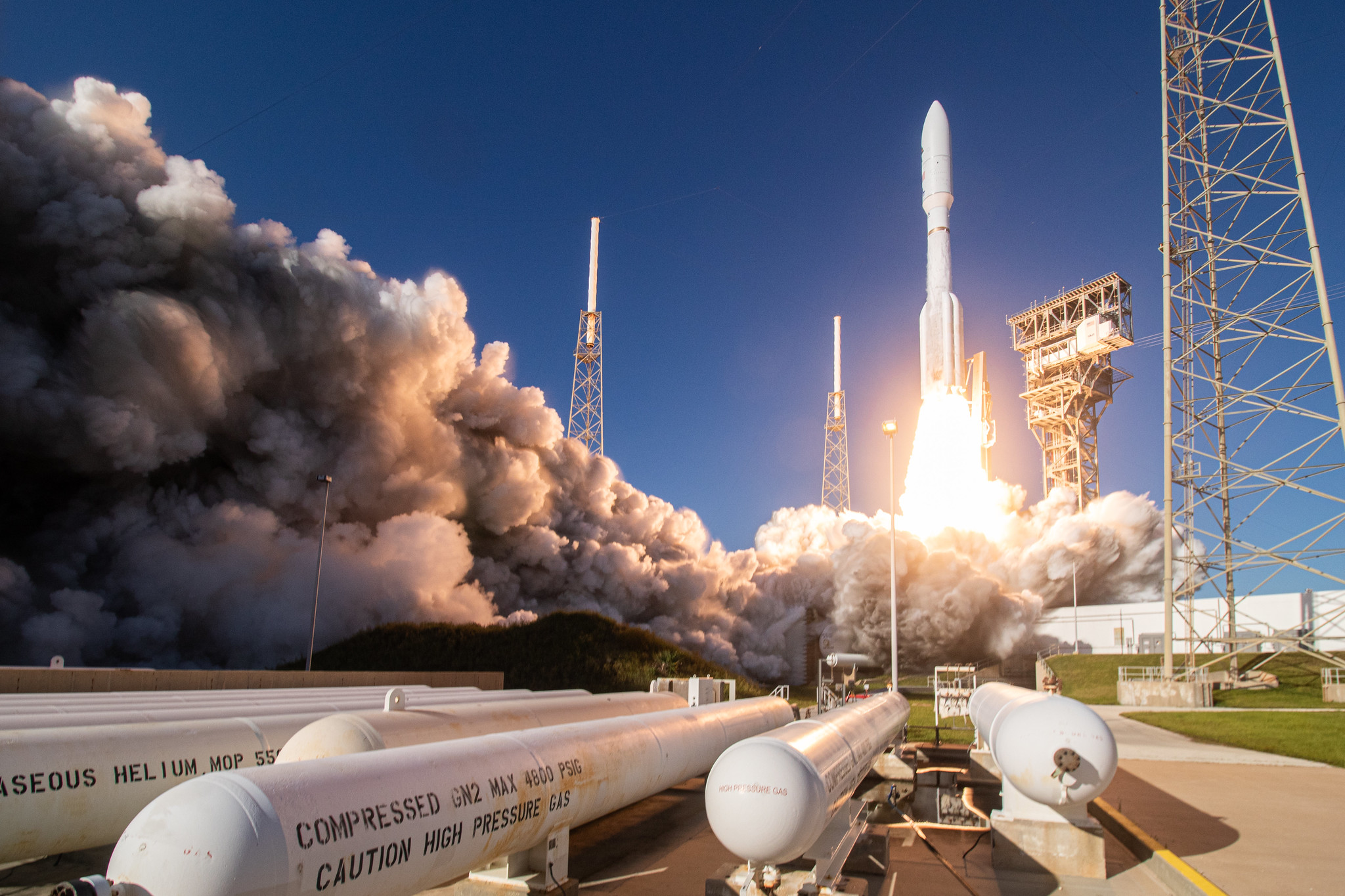WASHINGTON — United Launch Alliance, one of just two U.S. companies that provide national security launch services, does not have a problem with DoD’s decision to add a third competitor, a senior ULA executive said Sept. 13.
Gary Wentz, ULA’s vice president of government and commercial programs, said the company is supportive of the U.S. Space Force’s proposed strategy to add a third heavy-lift launch provider in the next round of contracts, known as National Security Space Launch Phase 3.
“From what we saw relative to Lane 2 and the addition of a third provider, we didn’t see any issues with that,” Wentz said during a panel discussion at the Global Aerospace Summit organized by the U.S. Chamber of Commerce.
Currently ULA and SpaceX are the only NSSL launch providers. Due to concerns about growing commercial demand, the Space Force said it plans to select a third provider in Lane 2 of NSSL Phase 3, creating an opportunity for a new entrant like Blue Origin which is developing a heavy rocket.
Lane 2 providers have to be able to fly to low, medium and high orbits. Of the 58 missions expected to be procured under Lane 2, seven — five GPS satellite launches to medium Earth orbit and two direct-to-geostationary orbit launches — will be set aside for a third provider, Space Force officials said.
ULA’s CEO Tory Bruno in July expressed concerns about the Phase 3 strategy and said he was still reviewing the details. One of Bruno’s concerns was that “it’s not a competition if everybody wins.”
Wentz said the company reviewed the latest draft solicitation and is on board. He noted that there are now more missions in Lane 2 than had been previously forecast so allocating seven to a third provider seems reasonable. “So we support it,” he said.
Blue Origin ‘looking at the RFP’
Blue Origin’s vice president of government sales Lars Hoffman — also speaking at the Chamber of Commerce event — said the company continues to work with the Space Force to develop a plan to certify the New Glenn rocket for NSSL after it starts flying in 2024.
“We’ve been doing that for a while,” said Hoffman. “So we’re actively engaged with them on that front. Things are progressing very nicely and, obviously, we’re looking at the draft requests for proposals that have come out.”
Hoffman did not say definitively that Blue Origin will submit a proposal for a Lane 2 contract.
With regard to the development of New Glenn, he said, “we’ve got more boosters, we’ve got three fairings. A lot of work is going on down at the Florida manufacturing complex.”
“We’re on track for launch next year,” Hoffman said.
